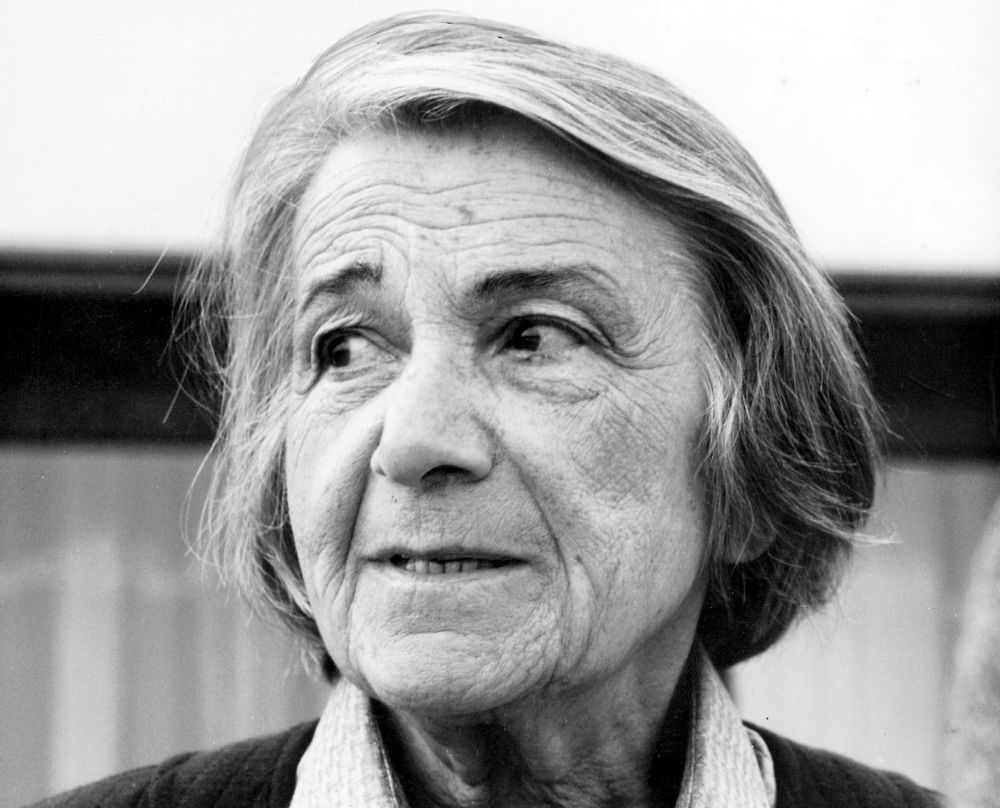Issue 114, Spring 1990

Nathalie Sarraute was eighty-three when she published her first best-seller, Childhood. Unlike her previous books, it was an autobiographical work. Memories from her Russian and French childhood emerge from a word or a gesture recalled, burn brightly for a moment, and fade. Quietly the mosaic takes shape, in her compassionate regard for the parents whose early divorce divided her love.
She was born in 1900 in Ivanovo, near Moscow. Her first book, Tropisms, a collection of brief texts that appeared in 1939, marked a fresh direction in French literature. She describes tropisms as the “interior movements that precede and prepare our words and actions, at the limits of our consciousness.” They happen in an instant, and apprehending them in the rush of human interactions demands painstaking attention. Tropisms became the key to all her subsequent work.
Highly respected in France, Sarraute has been translated into twenty-four languages; her fourteen books, including eight novels, most of which are available in English, have been published by Braziller and Riverrun. Since the 1960s, she has been a regular traveler, invited to universities around the world. Her husband, whom she met in law school, always accompanied her on these trips. She visits the United States every couple of years, and was last in New York in September of 1986 for the American premiere of her play Over Nothing At All.
For the past twenty years Sarraute has gone every morning to write at the same neighborhood café in Paris. The following interview took place at her home in the sixteenth arrondissement, near the Musée d'Art Moderne.
INTERVIEWER
You wrote your first novel at the age of twelve, then nothing until you were thirty-two. Why?
NATHALIE SARRAUTE
My mother wrote all the time, and to parrot her I wrote a “novel” full of all the platitudes I had read in love stories at the time. I showed it to a friend of my mother who said, Before writing novels one should learn to spell! Psychologists would see in that episode a typical childhood trauma. Actually, I think I did not write until much later because I had nothing to say.
At the lycée I liked writing essays because the subjects were imposed from outside. It made me realize how pleasant it was writing well turned-out sentences in a classical style—one was on equal terms with the classics, safe in their company. Whereas in my own writing I jump into a void, without any protection. I stumble and stammer, without anything to reassure me.
The traditional novel, with its plot and characters, etcetera, didn't interest me. I had received the shock of Proust in 1924, the revelation of a whole mental universe, and I thought that after Proust one could not go back to the Balzacian novel. Then I read Joyce, Virginia Woolf, etcetera . . . I thought Mrs. Dalloway was a masterpiece; Joyce's interior monologue was a revelation. In fact, there was a whole literature that I thought changed all that was done before. But as I said, I myself didn't write because I had nothing to say then.
INTERVIEWER
You started writing Tropisms when you were thirty-two; it is a short book of twenty-four pieces, yet it took you seven years.
SARRAUTE
It took five years, which is still long. Then I spent two years trying to find a publisher for it. Finally a very good publisher, Robert Lafont, who had discovered Céline and Queneau took it. He published it in the same collection as Queneau.
INTERVIEWER
How did you arrive at the form for those first short texts?
SARRAUTE
The first one came out just how it is in the book. I felt it like that. Some of the others I worked on a lot.
INTERVIEWER
And why did you choose the name Tropisms?
SARRAUTE
It was a term that was in the air, it came from the sciences, from biology, botany. I thought it fit the interior movement that I wanted to show. So when I had to come up with a title in order to show it to publishers, I took that.
INTERVIEWER
How did you know what they were at the time, these tropisms? How did you know when you'd found one?
SARRAUTE
I didn't always know, I might discover it in the writing. I didn't try to define them, they just came out like that.
INTERVIEWER
The tropisms often seem to work through a poetic sensibility.
SARRAUTE
I've always thought that there is no border, no separation, between poetry and prose. Michaux, is he prose or poetry? Or Francis Ponge? It's written in prose, and yet it's poetry, because it's the sensation that is carried across by way of the language.
INTERVIEWER
With the tropisms, did you feel that it was fiction, did you wonder what to call it?
SARRAUTE
I didn't pose myself such questions, really. I knew it seemed impossible to me to write in the traditional forms. They seemed to have no access to what we experienced. If we en- closed that in characters, personalities, a plot, we were overlooking everything that our senses were perceiving, which is what interested me. One had to take hold of the instant, by enlarging it, developing it. That's what I tried to do in Tropisms.
INTERVIEWER
Did you sense at the time that that was the direction your work would go?
SARRAUTE
I felt that a path was opening before me, a path that excited me. As if I'd found my own terrain, upon which I could move forward, where no one had gone prior to me. Where I was in charge.




